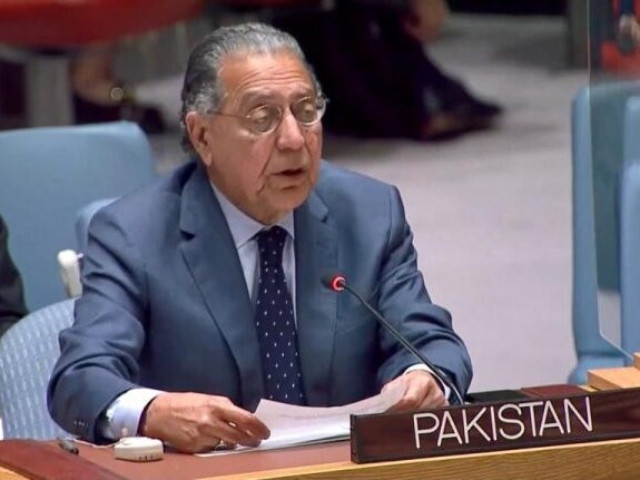
Pakistan, member of the Uniting for Consensus (UfC) group which opposes new permanent members in the UN Security Council, has reaffirmed its demand for adding more non-permanent seats to the 15-member body so as to make it more effective, representative and accountable.
"The UfC continues to believe that its proposal for an expansion of Security Council membership to 26 or 27, with the addition of 11 or 12 new non-permanent members, offers the best basis for Security Council reform," Ambassador Munir Akram, permanent representative to the UN, told delegates when the deadlocked Inter-Governmental Negotiations (IGN) aimed at restructuring the Council resumed on Tuesday.
The UfC's proposal to add only non-permanent members, elected periodically by the General Assembly, is "democratic and consistent" with the Charter's prescription that the Council "acts on behalf" of the entire membership, he said, adding it will also ensure "equitable representation" – the key objective of the Council reform process.
Full-scale negotiations to reform the Security Council began in the General Assembly in February 2009 on five key areas - the categories of membership, the question of veto, regional representation, size of an enlarged Security Council, and working methods of the council and its relationship with the General Assembly.
Progress towards reforming the Security Council remains blocked as G-4 countries - India, brazil, Germany and Japan - continue pushing for permanent seats in the Council, while the Italy/Pakistan-led UfC group opposes any additional permanent members.
As a compromise, UfC has proposed a new category of members - not permanent members - with longer duration in terms and a possibility to get re-elected.
The Security Council is currently composed of five permanent members - Britain, China, France, Russia and the United States - and 10 non-permanent members elected to two-year terms.
Participating in a discussion on the 'Categories of Membership and Cross-regional Representation', Ambassador Akram rejected claims by the aspirants of permanent membership about their reference to 'new realities', saying that there are more than four or six states, possibly 20, which are making greater contribution to peace and security than the four pushing for the permanent category.


1731933289-0/BeFunky-collage-(68)1731933289-0-165x106.webp)


1729662874-0/One-Direction-(1)1729662874-0-165x106.webp)
1732177123-0/BeFunk_§_]__-(21)1732177123-0.jpg)
1732179136-0/Copy-of-Untitled-(63)1732179136-0-270x192.webp)

1732172224-0/Express-Tribune-(1)1732172224-0-270x192.webp)
1732172770-0/Copy-of-Untitled-(60)1732172770-0-270x192.webp)
1732170944-0/Copy-of-Untitled-(57)1732170944-0-270x192.webp)
1724927597-0/BeFunky-(5)1724927597-0-270x192.webp)
1725612649-0/BeFunky-(84)1725612649-0-270x192.webp)






COMMENTS
Comments are moderated and generally will be posted if they are on-topic and not abusive.
For more information, please see our Comments FAQ